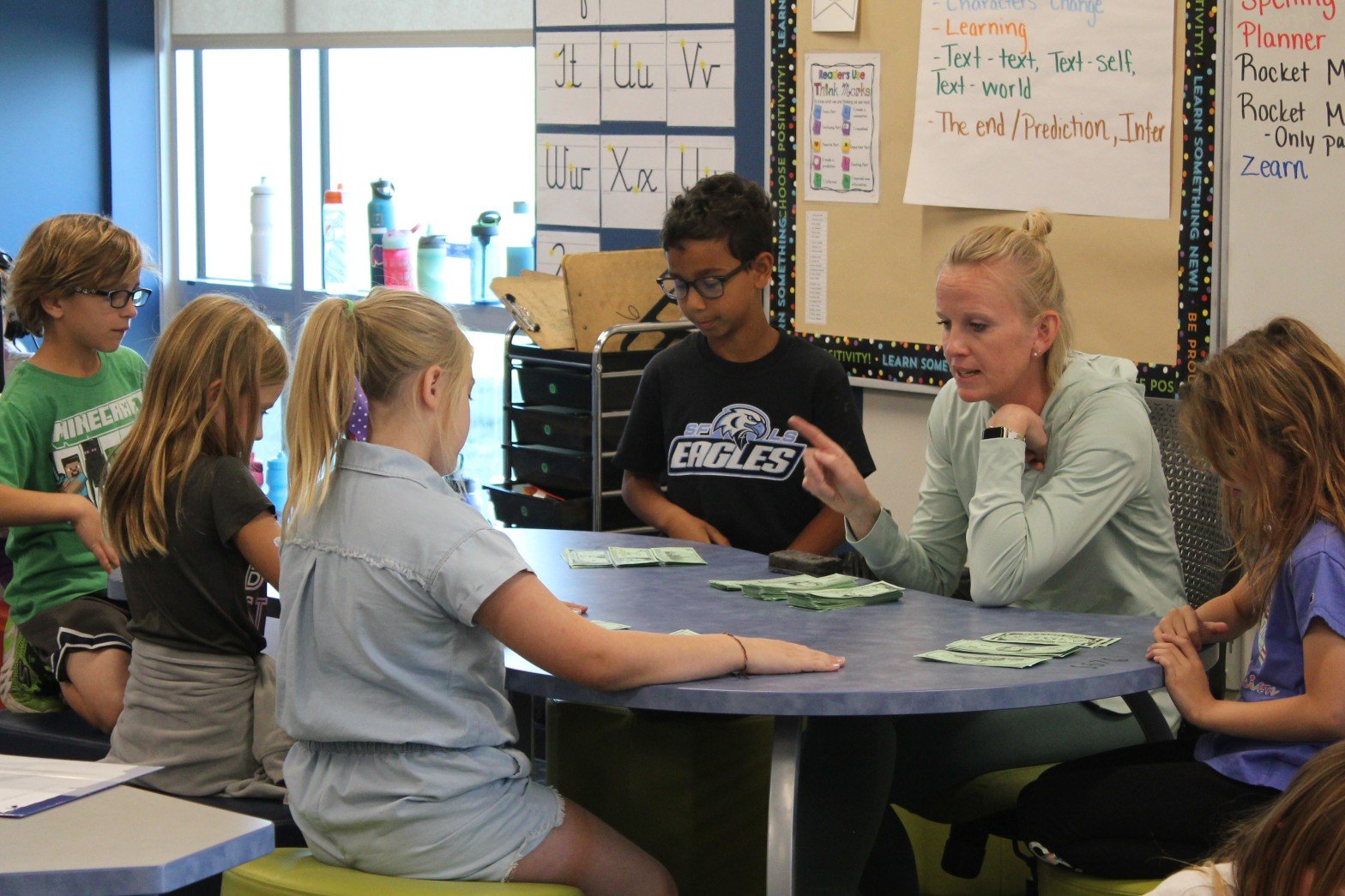Equipping SFLS Students to Serve the World as Peacemakers
In the midst of the most conflict-ridden time our country has experienced in decades, Christian educators at Sioux Falls Lutheran School are witnessing the difference that cultivating a culture of peace can have in the lives of students, families, and communities.
When preschool director and elementary principal, Brenda Bernard, meets with prospective families, she is quick to acknowledge that SFLS is not a perfect place.
“We are sinners who find our way into conflict just like the rest of the world,” Mrs. Bernard said. “And while we cannot avoid it, we can certainly prepare students to navigate conflict in a way that answers God’s call for Christians to serve the world as peacemakers.”
A few examples of this call can be found in the following verses:
“If it is possible, as far as it depends on you, live at peace with everyone.” -Romans 12:18
“As a prisoner for the Lord, then, I urge you to live a life worthy of the calling you have received. Be completely humble and gentle; be patient, bearing with one another in love. Make every effort to keep the unity of the Spirit through the bond of peace.” -Ephesians 4:1-3 (emphasis added)
“Blessed are the peacemakers, for they will be called children of God.” -Matthew 5:9
Teachers at SFLS are equipping students for that calling daily by using resources from PeaceWiseKids and PeaceWiseYouth curriculum to teach the skills they need to stay on top of conflict.
“We take a very proactive approach by devoting instructional time to conflict resolution and reconciliation strategies,” Mrs. Bernard said. “The lessons found in PeaceWise are rooted in scripture, and they are helping us build a unique atmosphere in our school community while equipping our students to serve the world as leaders.”
Developed from concepts found in Ken Sande’s book, The Peacemaker, PeaceWise provides a common language and impactful strategies for students to use when working through the conflicts they will inevitably encounter in the classroom with classmates and teachers, on the playground with friends, and at home with siblings and parents.
It all starts with a concept called the slippery slope. When confronted with challenging relationships and conflict, our natural human reactions involve slipping down the sides of the slope into “peace-breaking” attack mode or “peace-faking” escape mode. While those responses are natural, neither provide a healthy avenue for working through the conflict toward reconciliation. However, students can stay safe, healthy, and resolve matters in God-pleasing ways when they use the skills they learn to stay in the “peace-making” zone.
Katie Mlnarik, the third grade teacher at SFLS, shares that there are three rules to PeaceWiseKids: put God first, be kind to others, and be more like Jesus.
“Our goal in third grade is to learn how to communicate and live with each other in our classroom from day to day,” Mrs. Mlnarik said. “Knowing that the biggest gift God has given us is forgiveness, through PeaceWiseKids we’re learning how to give that forgiveness to others.”
Teachers, principals, and other school staff are an integral part of the peacemaking process as young students learn new skills. But over time, as students participate in guided peacemaking sessions with adults, they learn how to navigate their own peacemaking sessions as disagreements arise in day-to-day life.
Mrs. Bernard enjoys the process of watching that transformation happen in the lives of students.
“In my experience, fourth and fifth grade tend to be the ‘messy’ peacemaking years,” she shared. “There’s rapid physical, social, and emotional development happening simultaneously at that age, which results in a natural need for adult assistance. Serving as a mentor for peacemaking sessions is rewarding, because eventually students arrive in a place where they are solving their own problems out on the playground using the skills we’ve developed together. When that happens, they are simply thrilled to tell me about it, and that’s how I know the strategies we’ve implemented through PeaceWise are working.”
The ultimate goal of integrating such a robust program school-wide is to have students well prepared to share the power of peacemaking outside the walls of SFLS.
“Conflict is something that people are going to deal with no matter what age they are,” Mrs. Mlnarik said. “So we start at a young age with PeaceWiseKids, and we hope that they not only can practice reconciliation in the classroom with other people, but also take it home and use it there as well.”
According to Mrs. Bernard, the beauty of integrating PeaceWise in a setting where teachers are committed to keeping parents well-informed about concepts being taught in the classroom, is that parents have a natural opportunity to learn and practice the skills alongside their children.
While she dreams of someday hosting events where parents can receive more formal training in PeaceWise practices, Mrs. Bernard is thrilled with the way teachers are partnering with parents to get them involved in the learning process.
“So many parents I talk with share that they wish the concepts found in PeaceWise had been taught to them when they were children,” Mrs. Bernard said. “They see the value in the life skills their children are learning, because they’re out experiencing the reality of conflict in our world on a daily basis. I think parents find a great deal of comfort in our commitment to preparing kids for our complex world in a way that is practical and realistic, but also safe, healthy, and age-appropriate.”




